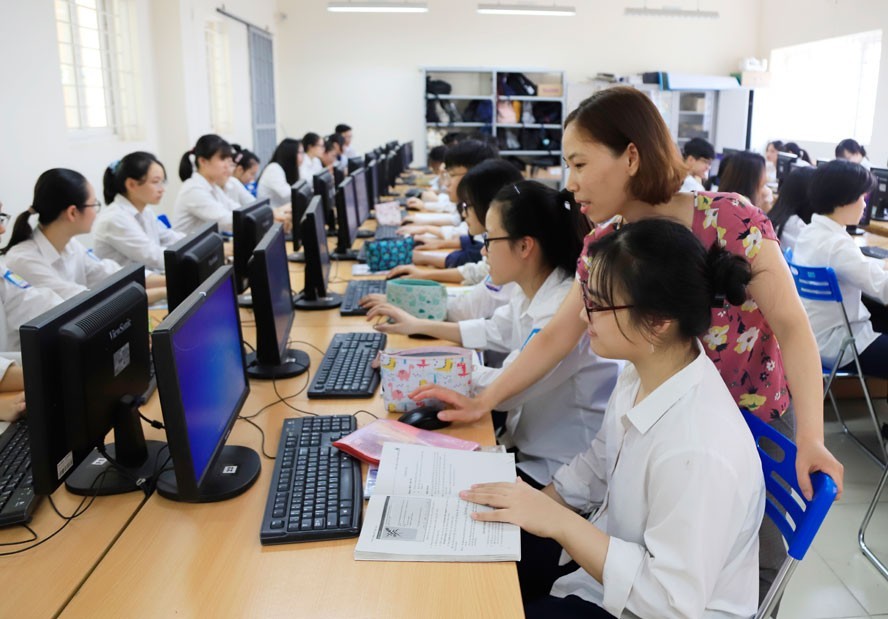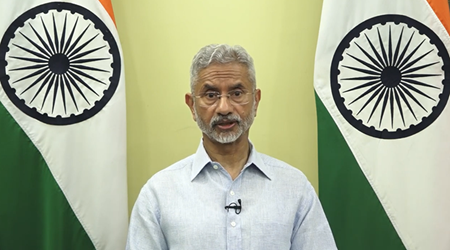
Prof. People’s Teacher Nguyen Lan Dung: Sadly the bachelor’s degree is as cheap as ever!
Latest
 |
| Prof. People's Teacher Nguyen Lan Dung. (Photo: WVR) |
Bachelor’s degree is as cheap as ever
The current education market is opening up opportunities but also challenging for young people. What do you think about this issue?
The concept of the education market is not the trade and exchange of everything that belongs to education, but rather considers education from the perspective of a service economy. From there, there is a right view in line with the tendency in the process of market economic development to meet the requirements of integration and development.
Education has special missions. Unlike other economic sectors, the main “product” of education is people and skills. It is a special commodity, so it is completely different from the operation of normal goods.
A country of over 90 million people with a tradition of studiousness like Vietnam will be a fertile education market for foreign investors. Many young people dream of studying abroad.
More and more foreign-invested private education systems are springing up in Vietnam, not only for higher education but also for basic education, starting from primary and secondary schools. While foreign universities are warmly welcomed, many domestic universities are "withering" because there is no input source.
There is no shortage of investors in the education sector in Vietnam, however, not many of them (investors) are successful, as most private schools have struggled in recent years.
The key here is product quality. If the product is of low quality, it will be difficult to compete with the high quality products.
There are hundreds of thousands of unemployed masters and bachelors and it is so sad that the bachelor's degree has never been as cheap as it is today. The quality of university training varies greatly among schools across the country.
What do you think about the quality of our country's young human resources compared to other countries in Southeast Asia and Asia?
Labor productivity of Vietnam is only higher than Cambodia; similar to Myanmar and Laos; lower than India, Philippines, Indonesia, China, Thailand and much lower than Malaysia as well as Singapore.
This poses great challenges for Vietnam in improving the quality of human resources, thereby raising labor productivity so that it can catch up with the countries’ labor productivity levels in the region.
In our country, the level of improvement and the gap in educational attainment are different between urban and rural areas. This is a sign of the decentralization and imbalance of human resources among regions, which will inevitably lead to disparities in population living standards and socio-economic development between regions. This can also be seen as a major gap in the quality of Vietnam's labor force today.
Additionally, the proportion of workers with professional and technical qualifications is still low.
According to the assessment of the World Bank (WB), Vietnam is lacked of skilled and high-level technical workers. In the current development tendency, Vietnam still has a great need for high-quality and skillful human resources.
However, the current inadequacies not only hinder the potential contribution of labor to increase productivity, but also pose a heavy task in improving the quality of labor resources for the cause of industrialization and modernization, and international economic integration of Vietnam.
 |
| Schools need to have career-oriented in their training content. (Photo: Hanoimoi) |
Challenges in improving human resources
In your opinion, what are the challenges of Vietnam in improving the quality of human resources and raising labor productivity in order to catch up with the labor productivity levels of Southeast Asian countries?
Although Vietnam's labor productivity has improved in the 2016-2020 period, it still lags behind many countries in the region, far behind Singapore, Malaysia, Thailand or even Indonesia.
As estimated by the International Labor Organization (ILO), Vietnam's labor productivity in 2020 is 7 times lower than from Malaysia; 3 times from Thailand; 2 times from the Philippines and 26 times of Singapore. This shows the gap and challenges the Vietnamese economy faces in order to catch up with other countries' labor productivity levels.
The factors that make Vietnam's labor productivity low are the slow economic structure, the high proportion of labor in agriculture, the outdated machinery, equipment and technological processes, and the quality, structure and efficiency of using labor have not met the requirements.
Besides, the starting point of the economy is low; the level of organization, management and effective use of resources are still inadequate; growth mainly depends on the contribution of capital and labor factors, the contribution of the productivity of the aggregate factors is not high.
Science and technology have a direct impact on improving the quality of human resources, changing the organizational process, professional qualifications and motivating employees to constantly learn, self-train, and self-knowledge.
Schools need to have career-oriented in their training content
In general, it is difficult for a part of young people to access decent job opportunities, while many businesses cannot recruit suitable personnel. In your opinion, how to solve this problem?
Universities, professional secondary schools and vocational schools need to have career-oriented in their training content. Previously, I taught in Microbiology, I always think after graduation, what jobs my students can do?
Therefore, in addition to basic knowledge, I am interested in bringing into the program thematic fields related to medicine, pharmacy, agriculture, food industry… I am very happy to see that my students every year were received by labor market very quickly. Many students later are very successful.
In recent years, many companies are no longer focusing too much on hiring people with degrees, but instead they will evaluate candidates through the interview process.
Employers will be willing to choose candidates who match the company's criteria and accept re-training methodically. Besides, many students often have illusions about their degrees and abilities.
For example, for students majoring in foreign languages, in class, you learn foreign languages very well, get very high scores, and you think that's enough to go out and talk to businesses.
However, businesses not only require young people for expertise but also need many soft skills. We need to understand that being good at a foreign language is just a tool for you to apply for a job.
Young people should not refuse any opportunity, always be active to create opportunities for yourself. Especially, for fresh graduates, dynamism is essential. It will help you find more job opportunities and know what your limitations are that need to be overcome.
When you have the opportunity, please arrange the time to go to the business to visit, learn, accumulate more experience.
In my opinion, it is very practical meaning to organize mobile job sessions in localities. This is a favorable opportunity for employees, especially young people and final year students, when they can access and participate in the labor market.
You will have direct contact with employers to choose suitable jobs for your qualifications and abilities. Meanwhile, you can participate in job counseling, career guidance, legal policies and provide labor market information.
So how can we link the training products of the schools with the recruitment needs of the market?
The weakness of the vocationally trained workers nowadays is the lack of knowledge and basic working skills such as communication skills, teamwork, discipline, etc.
The cooperation of enterprises with educational institutions opens up opportunities for students. From here, children have the opportunity to access technology with the knowledge they have learned.
In the coming time, it is required that training institutions, businesses and the Government really go hand in hand, no one is higher than each other, towards building a symbiotic and innovative start-up ecosystem, together for sustainable development.
Internships at important enterprises are no different from medical school students who often practice at hospitals.
In other perspective, the mindset obsessed with achievement and mentality of degree are still heavy?
Degrees are required certifications for employers. Workers need to have a cultural level equivalent to their degree. However, the employer also needs to know the labor skills of the person being recruited.
In the midst of a constantly changing society, make sure that your work schedule and interviewing experience don't make you look inferior to other candidates.
Maybe at work, you are a humble and unpretentious person. But in the job market, you need to present yourself as an experienced and effective person, worth the desire and choice of employers.
After the COVID-19 pandemic, young people need to assume that a lot of things have changed, so careful research on market trends, patience and creativity to stand out will make your job opportunities even better.






















